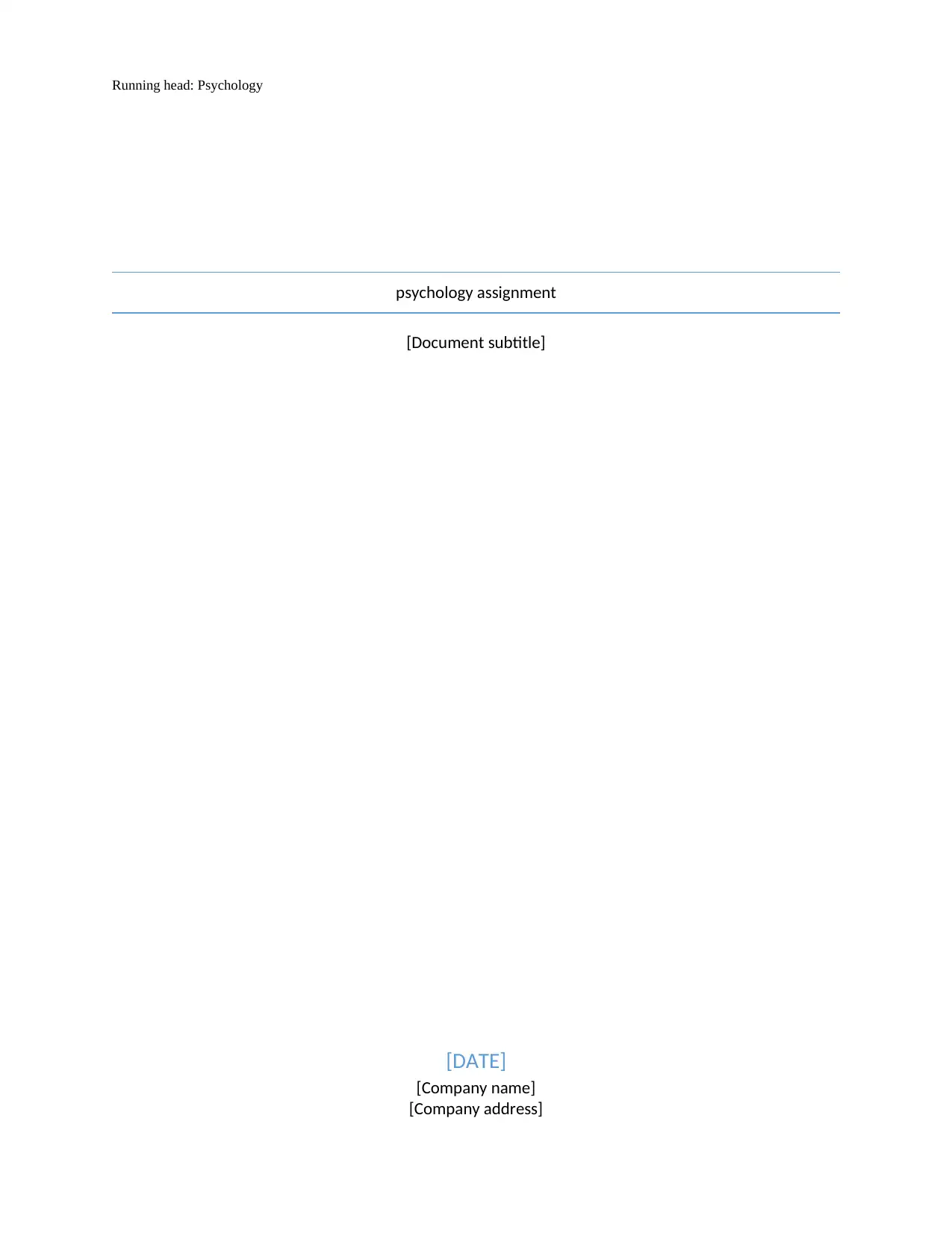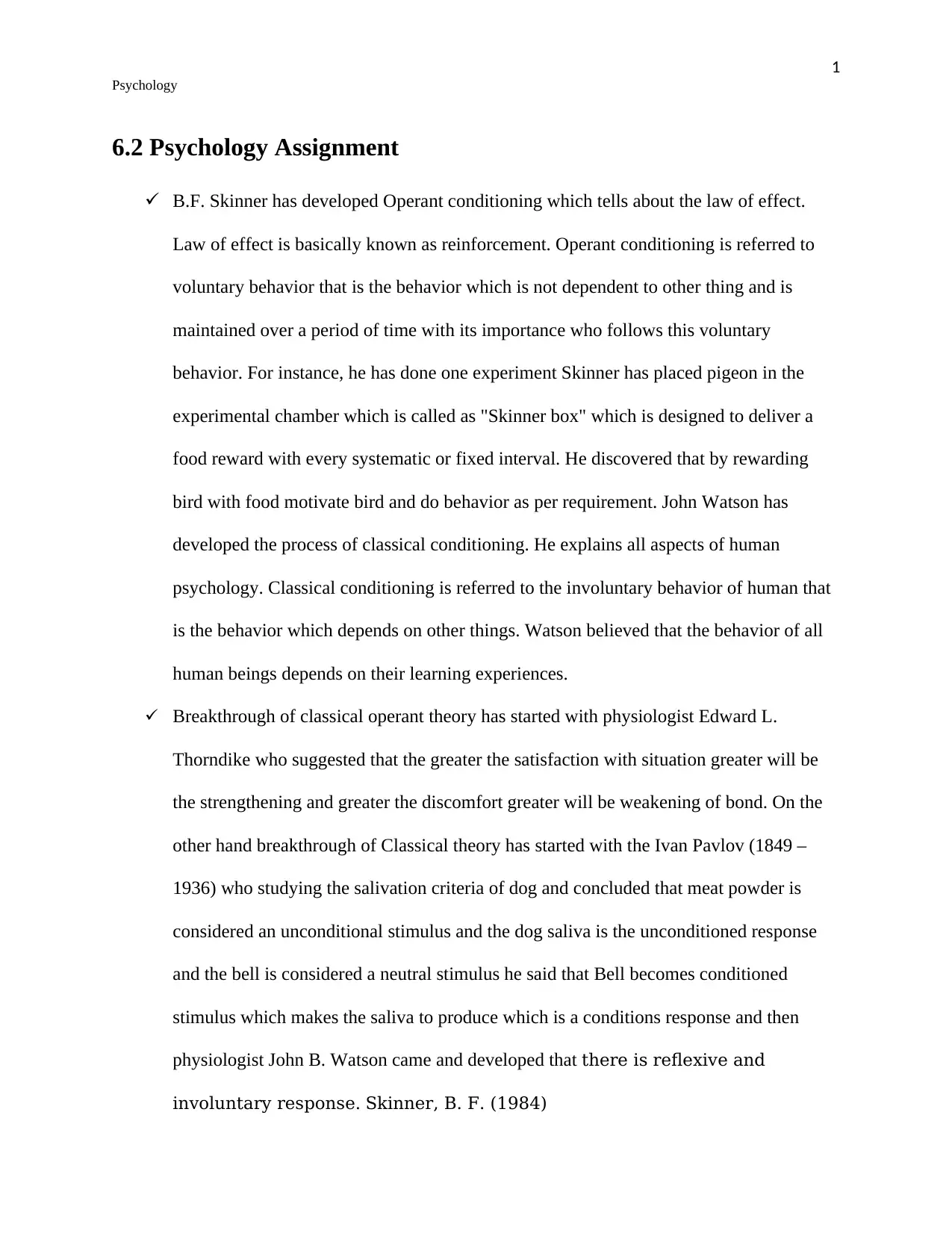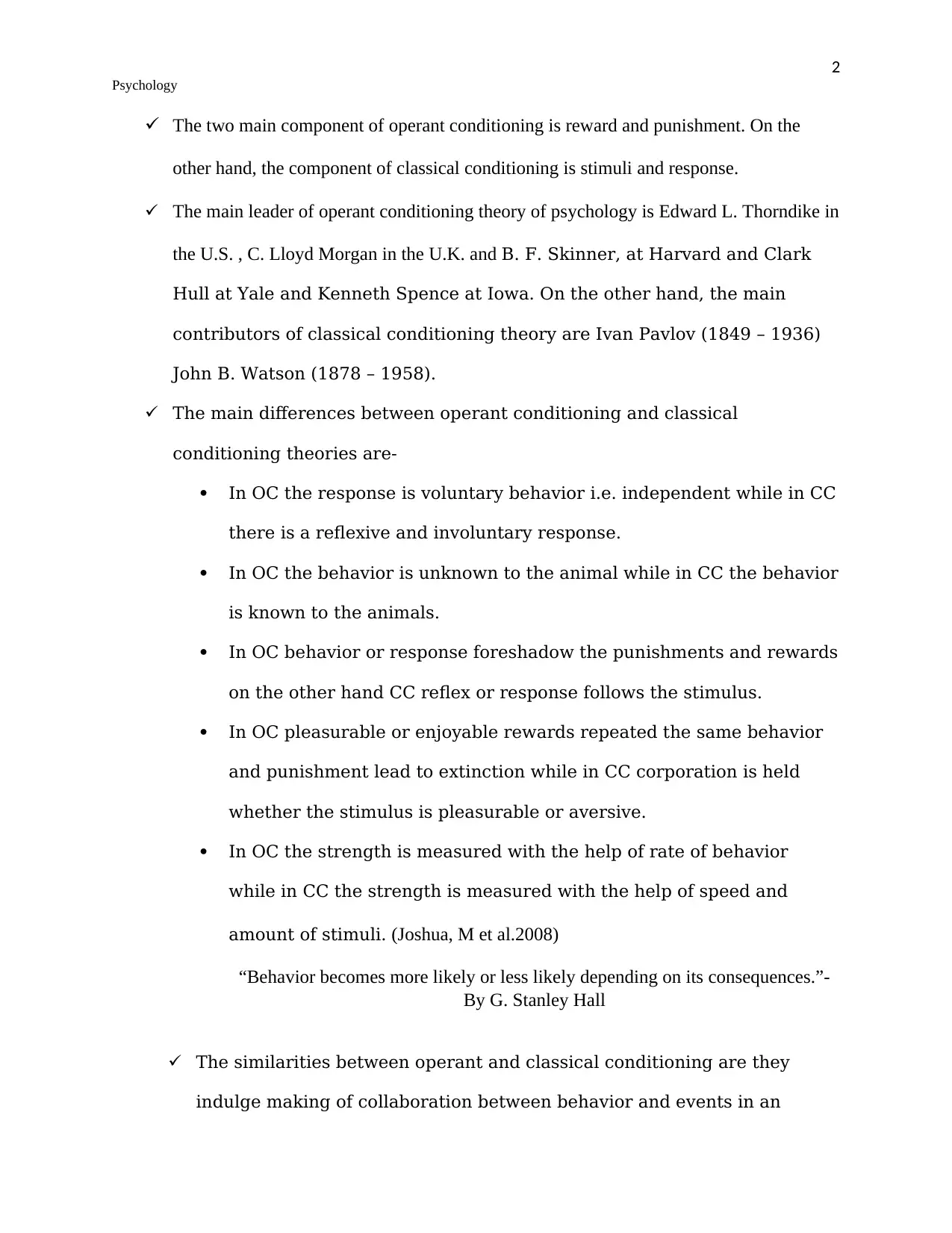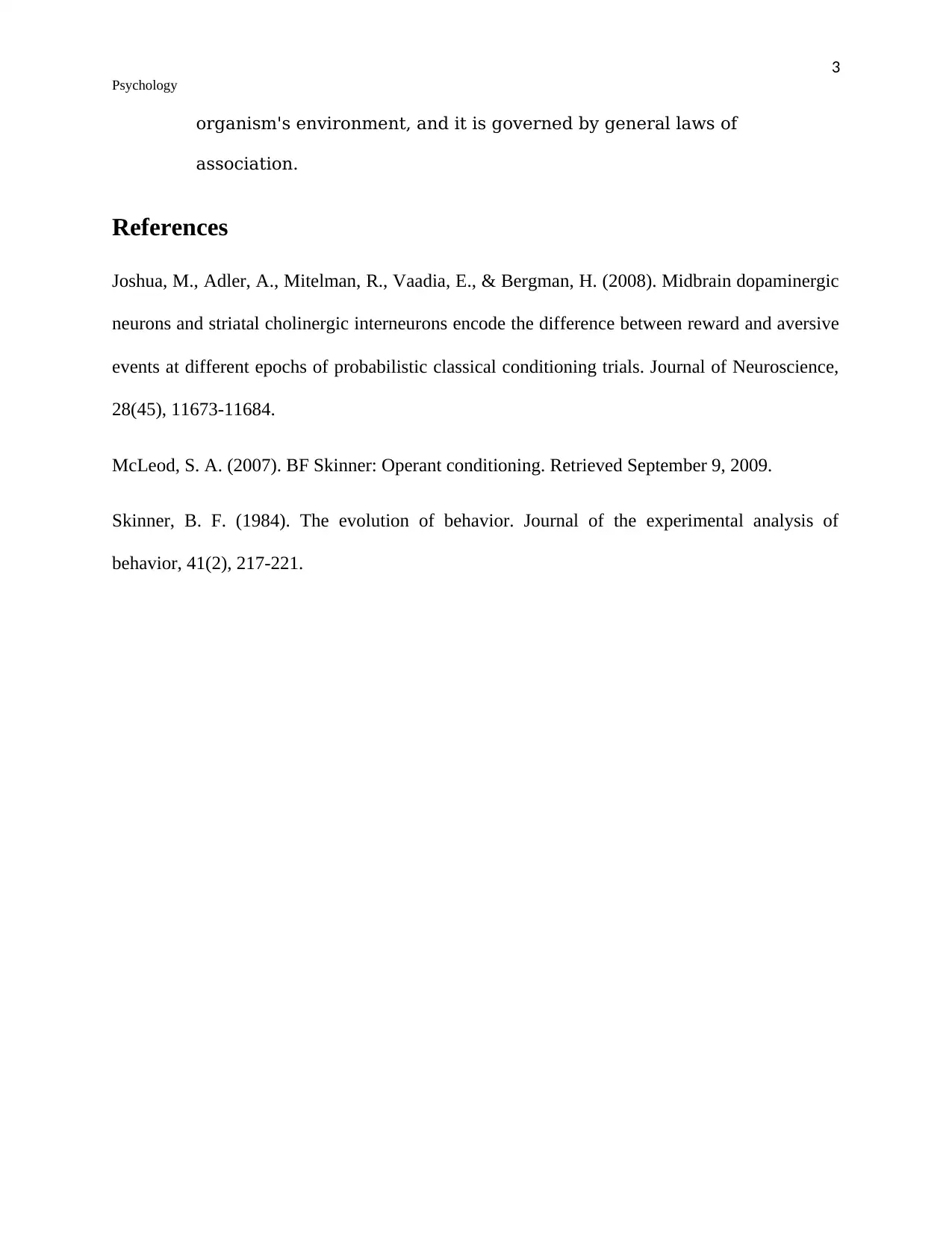Psychology Assignment: Exploring Key Concepts in Conditioning Theories
VerifiedAdded on 2019/09/25
|4
|732
|267
Homework Assignment
AI Summary
This psychology assignment delves into the contrasting theories of operant and classical conditioning. It examines the contributions of key figures such as B.F. Skinner, John Watson, Edward Thorndike, and Ivan Pavlov. The assignment explores the fundamental differences between the two conditioning types, including voluntary versus involuntary responses, the role of rewards and punishments in operant conditioning, and the influence of stimuli and responses in classical conditioning. Furthermore, it highlights the similarities between the two theories, emphasizing their shared foundation in the association between behavior and environmental events. The assignment provides a comprehensive overview of the core concepts and principles of both operant and classical conditioning, supported by relevant references.
1 out of 4










![[object Object]](/_next/static/media/star-bottom.7253800d.svg)